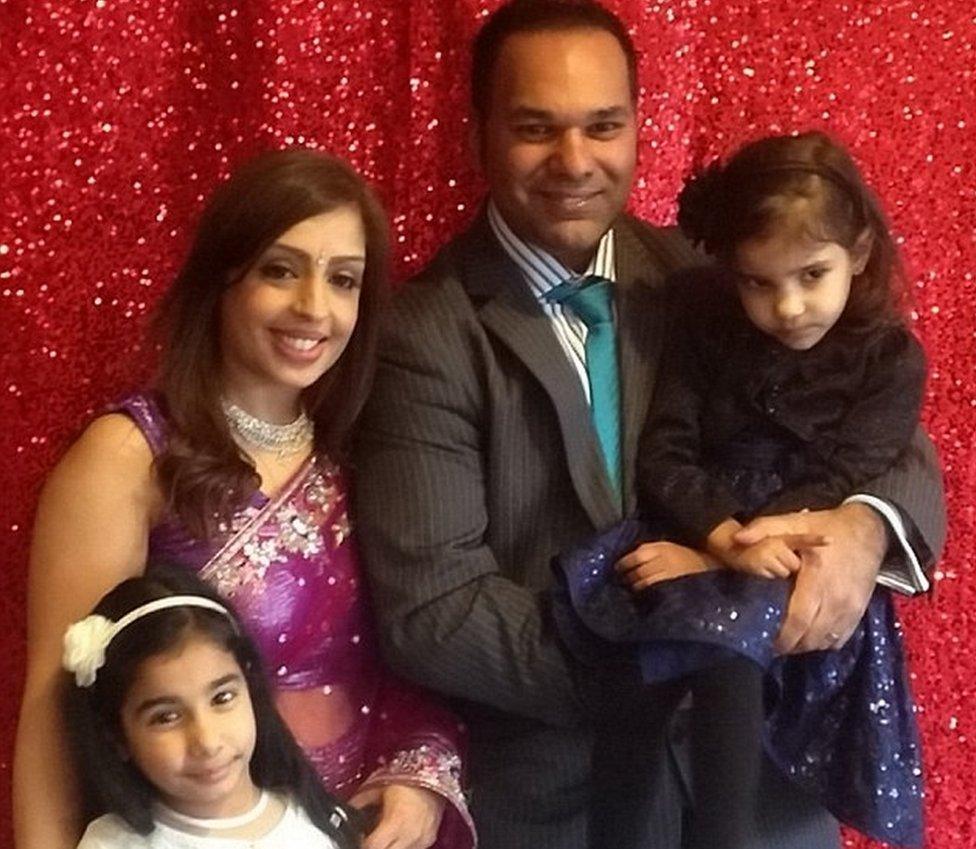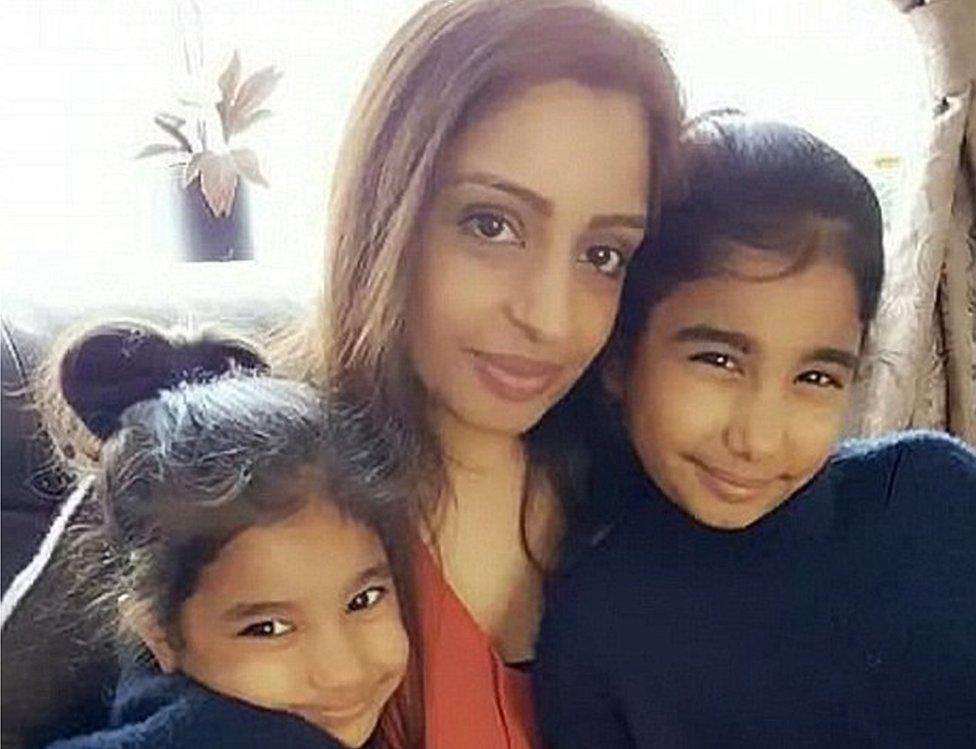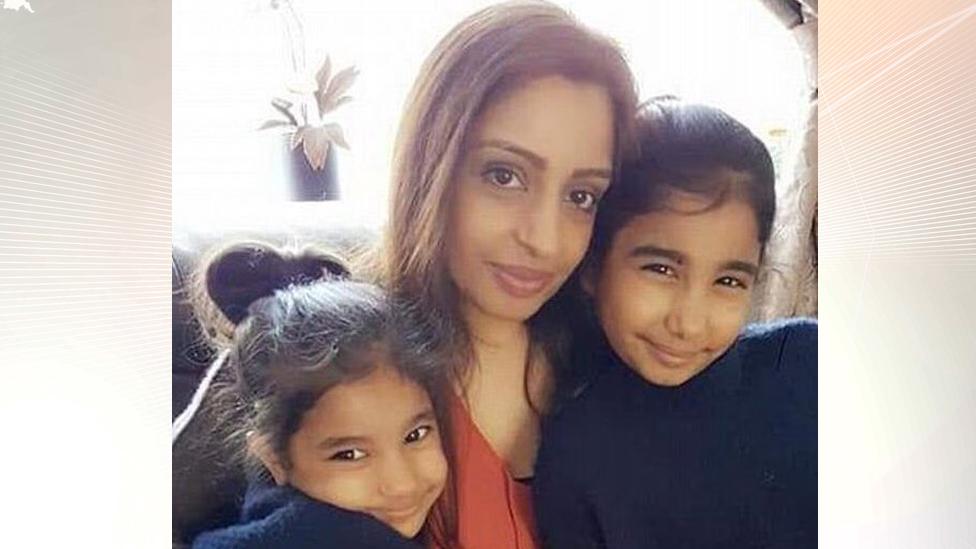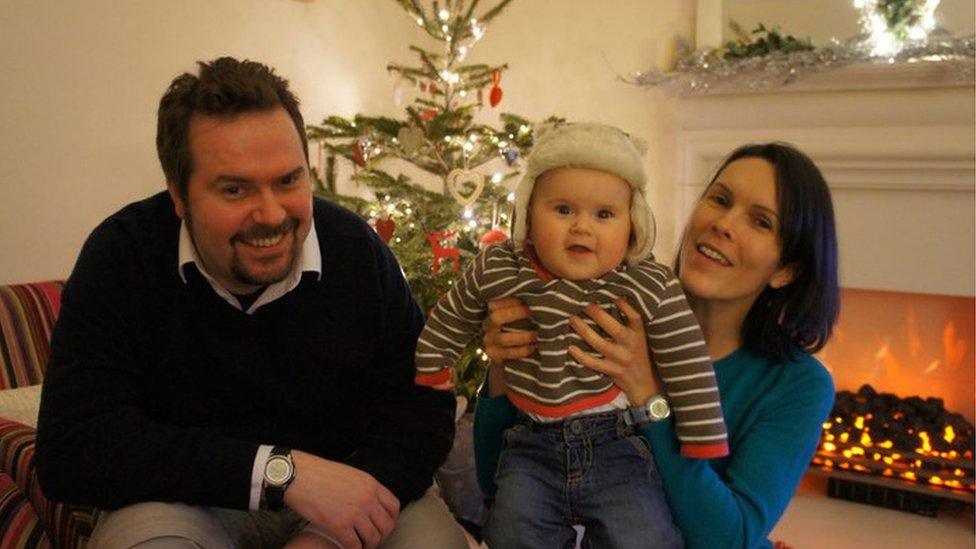Family's struggle after pregnant woman's sepsis death
- Published

Reeta Saidha died at Basildon Hospital after complications during pregnancy
The husband of a pregnant woman who died of sepsis has said he and their two young children are struggling to cope with the loss.
Reeta Saidha was 15 weeks pregnant when her waters broke, in December. She died five days later at Basildon Hospital.
An inquest found insufficient monitoring and missed opportunities to remove the infection surgically had contributed to her death.
Basildon and Thurrock University Hospital Trust has apologised.
The coroner also found Mrs Saidha should have been offered an option to terminate the pregnancy earlier but, due to ineffective communication and a lack of senior review, was not.
'Very dark times'
Bhooshan Saidha told the BBC's Victoria Derbyshire programme: "No amount of apologies will bring back the one thing I need, my wife".
The couple have two children together, aged six and nine.
"My main focus is the kids and to give them stability - but these are very dark times for us.
"It's been so difficult seeing the children cry for their mummy," he said.

Mrs Saidha, 38, from Grays, Essex, had been told the baby would not survive after her waters broke, and was left to wait up to 48 hours for the foetus to come out naturally.
In that time, she developed sepsis.
Sepsis needs to be spotted and treated quickly, usually with antibiotics, before it spreads.
Medics say that for every hour's delay in antibiotics, the chances of dying from sepsis increases.

The inquest heard she had not been seen by a consultant until her fourth day in hospital - despite suffering severe symptoms - and she had died on her fifth day.
Mr Saidha said he had "watched her deteriorate", while at one stage - on the third day in hospital - she had gone seven hours without being seen by a doctor.
"She was shaking and shivering and having palpitations.
"She started talking to me in a way she wouldn't normally, saying to us all she loved us and loved the family - but there were long pauses and she was struggling to get her breath."
On the fourth day, she had been taken to an operating theatre to have the source of the infection removed, Mr Saidha said.
"Once that was done, a doctor told me generally things would be OK. That alleviated my concerns."
Mrs Saidha died the following day, having been transferred to the intensive care unit.
"They left her far too long, and the windows of opportunity had been missed to save her," her husband said.
Sepsis awareness
The trust said it offered "Mr Saidha and his family a full and sincere apology for missing the opportunity to prevent Mrs Saidha's death".
"We appreciate that this does not in any way diminish the loss or distress caused to Mrs Saidha's family."
It added that it had carried out "a thorough internal investigation into this incident and changes to our policies and procedures have already been implemented as a result".
Mr Saidha believes there "needs to be more sepsis awareness in training in hospitals and institutions".
"Communication needs to improve if symptoms are to be spotted and acted upon," he said.
Watch the BBC's Victoria Derbyshire programme on weekdays between 09:00 and 11:00 on BBC Two and the BBC News channel in the UK.
- Published23 July 2018

- Published5 February 2018
